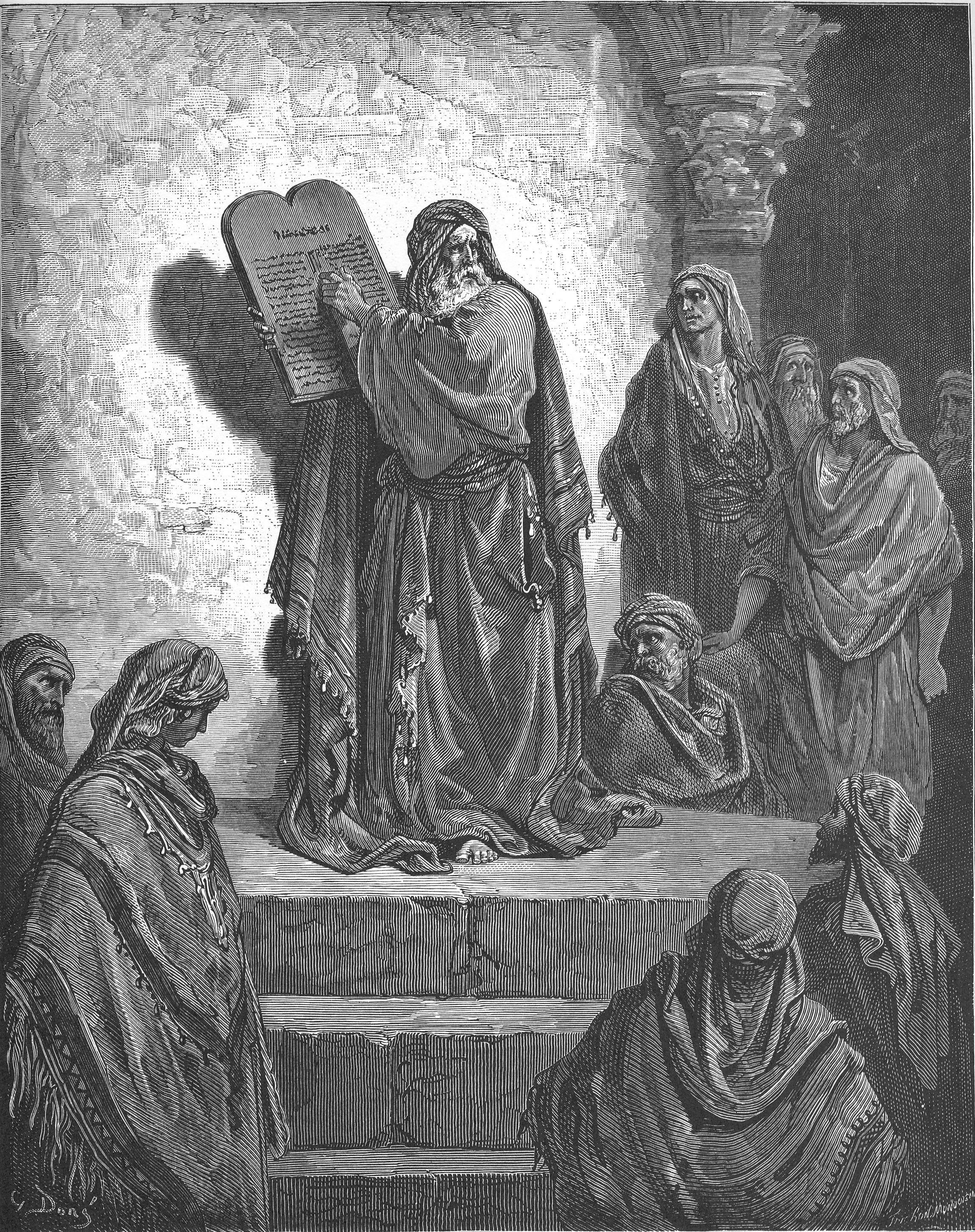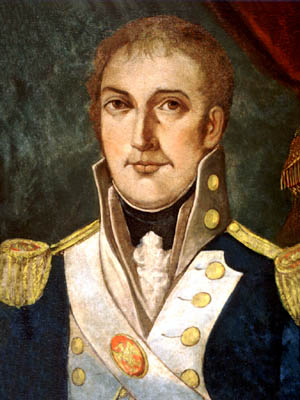|
Paul Octave Hébert
Paul Octave Hébert (December 12, 1818 – August 29, 1880) was the 14th Governor of Louisiana from 1853 to 1856 and a brigadier general in the Confederate States Army. Early life Hébert was born on December 12, 1818 about five miles south of Plaquemine in Iberville Parish, Louisiana. Warner, Ezra J. ''Generals in Gray: Lives of the Confederate Commanders''. Baton Rouge: Louisiana State University Press, 1959. . p. 131. He graduated first in his class at Jefferson College in Convent, in 1836. He then attended the United States Military Academy at West Point, where he graduated at the top of his class in 1840. He was a classmate of American Civil War Generals William T. Sherman, George H. Thomas, Richard S. Ewell, Bushrod Johnson. The following year he was a professor of engineering at West Point. In 1842, Hébert married Marie Coralie Wills Vaughn, the daughter of a sugar planter. They had five children. State engineer In 1845, Hébert resigned from the army after being appoi ... [...More Info...] [...Related Items...] OR: [Wikipedia] [Google] [Baidu] |
William Wood Farmer
William Wood Farmer (27 April 1813 – 23 October 1854) was an American politician. In 1853 and 1854 he served as Lieutenant Governor of Louisiana. Life William Farmer was born in Ouachita Parish, Louisiana. He received an excellent education and he served as one of the first justices of the peace in his home area. He owned a plantation and he worked as a surveyor. Politically he joined the Democratic Party and he served several terms in both chambers of the Louisiana Legislative. In 1852 he was elected to the office of the Lieutenant Governor of Louisiana. He served in this position between 1853 and his death the following year. In this function he was the deputy of Governor Paul Octave Hébert and he presided over the Louisiana State Senate. In October 1854 he travelled to New Orleans New Orleans ( , ,New Orleans [...More Info...] [...Related Items...] OR: [Wikipedia] [Google] [Baidu] |
American Civil War
The American Civil War (April 12, 1861 – May 26, 1865; also known by other names) was a civil war in the United States. It was fought between the Union ("the North") and the Confederacy ("the South"), the latter formed by states that had seceded. The central cause of the war was the dispute over whether slavery would be permitted to expand into the western territories, leading to more slave states, or be prevented from doing so, which was widely believed would place slavery on a course of ultimate extinction. Decades of political controversy over slavery were brought to a head by the victory in the 1860 U.S. presidential election of Abraham Lincoln, who opposed slavery's expansion into the west. An initial seven southern slave states responded to Lincoln's victory by seceding from the United States and, in 1861, forming the Confederacy. The Confederacy seized U.S. forts and other federal assets within their borders. Led by Confederate President Jefferson Davis, ... [...More Info...] [...Related Items...] OR: [Wikipedia] [Google] [Baidu] |
Planter (American South)
The planter class, known alternatively in the United States as the Southern aristocracy, was a racial and socioeconomic caste of pan-American society that dominated 17th and 18th century agricultural markets. The Atlantic slave trade permitted planters access to inexpensive African slave labor for the planting and harvesting of crops such as tobacco, cotton, indigo, coffee, tea, cocoa, sugarcane, sisal, oil seeds Vegetable oils, or vegetable fats, are oils extracted from seeds or from other parts of fruits. Like animal fats, vegetable fats are ''mixtures'' of triglycerides. Soybean oil, grape seed oil, and cocoa butter are examples of seed oils, or fat ..., Elaeis, oil palms, hemp, Hevea brasiliensis, rubber trees, and fruits. Planters were considered part of the American gentry. In the Southern United States, planters maintained a distinct culture, which was characterized by its similarity to the manners and customs of the British nobility and Landed gentry, gentry. The cu ... [...More Info...] [...Related Items...] OR: [Wikipedia] [Google] [Baidu] |
Bushrod Johnson
Bushrod Rust Johnson (October 7, 1817 – September 12, 1880) was a Confederate general in the American Civil War and an officer in the United States Army. As a university professor he had been active in the state militias of Kentucky and Tennessee and on the outbreak of hostilities he sided with the South, despite having been born in the North in a family of abolitionist quakers. As a divisional commander he managed to evade capture at the Battle of Fort Donelson, but was wounded at the Battle of Shiloh. He served under Robert E. Lee throughout the 10-month Siege of Petersburg, and surrendered with him at Appomattox. Early life Johnson was born in Belmont County, Ohio. He was raised as a Quaker and, before moving to the South, worked on the Underground Railroad with his uncle. He graduated from the United States Military Academy in 1840 and was commissioned a second lieutenant in the 3rd U.S. Infantry. He fought in the Seminole War in Florida and the Mexican–American War. ... [...More Info...] [...Related Items...] OR: [Wikipedia] [Google] [Baidu] |
Richard S
Richard is a male given name. It originates, via Old French, from Old Frankish and is a compound of the words descending from Proto-Germanic ''*rīk-'' 'ruler, leader, king' and ''*hardu-'' 'strong, brave, hardy', and it therefore means 'strong in rule'. Nicknames include "Richie", "Dick", "Dickon", " Dickie", "Rich", "Rick", "Rico", "Ricky", and more. Richard is a common English, German and French male name. It's also used in many more languages, particularly Germanic, such as Norwegian, Danish, Swedish, Icelandic, and Dutch, as well as other languages including Irish, Scottish, Welsh and Finnish. Richard is cognate with variants of the name in other European languages, such as the Swedish "Rickard", the Catalan "Ricard" and the Italian "Riccardo", among others (see comprehensive variant list below). People named Richard Multiple people with the same name * Richard Andersen (other) * Richard Anderson (other) * Richard Cartwright (other) * Ri ... [...More Info...] [...Related Items...] OR: [Wikipedia] [Google] [Baidu] |
George H
George may refer to: People * George (given name) * George (surname) * George (singer), American-Canadian singer George Nozuka, known by the mononym George * George Washington, First President of the United States * George W. Bush, 43rd President of the United States * George H. W. Bush, 41st President of the United States * George V, King of Great Britain, Ireland, the British Dominions and Emperor of India from 1910-1936 * George VI, King of Great Britain, Ireland, the British Dominions and Emperor of India from 1936-1952 * Prince George of Wales * George Papagheorghe also known as Jorge / GEØRGE * George, stage name of Giorgio Moroder * George Harrison, an English musician and singer-songwriter Places South Africa * George, Western Cape ** George Airport United States * George, Iowa * George, Missouri * George, Washington * George County, Mississippi * George Air Force Base, a former U.S. Air Force base located in California Characters * George (Peppa Pig), a 2-year-old ... [...More Info...] [...Related Items...] OR: [Wikipedia] [Google] [Baidu] |
William T
William is a male given name of Germanic origin.Hanks, Hardcastle and Hodges, ''Oxford Dictionary of First Names'', Oxford University Press, 2nd edition, , p. 276. It became very popular in the English language after the Norman conquest of England in 1066,All Things William"Meaning & Origin of the Name"/ref> and remained so throughout the Middle Ages and into the modern era. It is sometimes abbreviated "Wm." Shortened familiar versions in English include Will, Wills, Willy, Willie, Bill, and Billy. A common Irish form is Liam. Scottish diminutives include Wull, Willie or Wullie (as in Oor Wullie or the play ''Douglas''). Female forms are Willa, Willemina, Wilma and Wilhelmina. Etymology William is related to the given name ''Wilhelm'' (cf. Proto-Germanic ᚹᛁᛚᛃᚨᚺᛖᛚᛗᚨᛉ, ''*Wiljahelmaz'' > German ''Wilhelm'' and Old Norse ᚢᛁᛚᛋᛅᚼᛅᛚᛘᛅᛋ, ''Vilhjálmr''). By regular sound changes, the native, inherited English form of the name shoul ... [...More Info...] [...Related Items...] OR: [Wikipedia] [Google] [Baidu] |
Convent, Louisiana
Convent (french: Couvent) is a census-designated place in and the parish seat of St. James Parish, Louisiana, United States. It has been the parish seat since 1869. It is part of the New Orleans Metropolitan Area . As of the 2010 census, its population was 711, and 2018 estimates put the parish at 2174 people, 61% of whom were African American. The 2018 median household income was $52,292 above the state's average. History The community was originally named Baron when first settled 1722 to 1739. It was the location of the St. Michael's Convent (Order of the Sacred Heart) from 1825 to 1932 and the location of Jefferson College, 1831 to 1931. St. Michael's Church Historic District and Jefferson College (now a Jesuit retreat center called Manresa House of Retreats), along with several historic homes in Convent, are listed on the National Register of Historic Places. The former Jefferson College operated in Convent. Among its alumni was Etienne J. Caire, who owned the E. J. ... [...More Info...] [...Related Items...] OR: [Wikipedia] [Google] [Baidu] |
Ezra J
Ezra (; he, עֶזְרָא, '; fl. 480–440 BCE), also called Ezra the Scribe (, ') and Ezra the Priest in the Book of Ezra, was a Jewish scribe (''sofer'') and priest (''kohen''). In Greco-Latin Ezra is called Esdras ( grc-gre, Ἔσδρας). According to the Hebrew Bible he was a descendant of Sraya, the last High Priest to serve in the First Temple, and a close relative of Joshua, the first High Priest of the Second Temple. He returned from Babylonian exile and reintroduced the Torah in Jerusalem. According to 1 Esdras, a Greek translation of the Book of Ezra still in use in Eastern Orthodoxy, he was also a High Priest. Rabbinic tradition holds that he was an ordinary member of the priesthood. Several traditions have developed over his place of burial. One tradition says that he is buried in al-Uzayr near Basra (Iraq), while another tradition alleges that he is buried in Tadif near Aleppo, in northern Syria. His name may be an abbreviation of ', " Yah helps". In the Gr ... [...More Info...] [...Related Items...] OR: [Wikipedia] [Google] [Baidu] |
Iberville Parish
Iberville Parish (french: Paroisse d'Iberville) is a List of parishes in Louisiana, parish located south of Baton Rouge in the U.S. state of Louisiana, formed in 1807. The parish seat is Plaquemine, Louisiana, Plaquemine. At the 2010 U.S. census, the population was 33,387, and 30,241 at the 2020 United States census, 2020 census. History The parish is named for Pierre Le Moyne d'Iberville, who founded the French Louisiana (New France), colony of Louisiana. A few archeological efforts have been made in the Parish, mainly to excavate the Mound#North American archaeology, Native American burial mounds that have been identified there. The first expedition, led by Clarence B. Moore, was an attempt at collecting data from a couple of the sites, and it set the groundwork for later projects. Moore was mainly interested in the skeletal remains of the previous inhabitants, rather than excavating for Material culture, archeological items. Archeologists are especially interested in these sit ... [...More Info...] [...Related Items...] OR: [Wikipedia] [Google] [Baidu] |
Confederate States Army
The Confederate States Army, also called the Confederate Army or the Southern Army, was the military land force of the Confederate States of America (commonly referred to as the Confederacy) during the American Civil War (1861–1865), fighting against the United States forces to win the independence of the Southern states and uphold the institution of slavery. On February 28, 1861, the Provisional Confederate Congress established a provisional volunteer army and gave control over military operations and authority for mustering state forces and volunteers to the newly chosen Confederate president, Jefferson Davis. Davis was a graduate of the U.S. Military Academy, and colonel of a volunteer regiment during the Mexican–American War. He had also been a United States senator from Mississippi and U.S. Secretary of War under President Franklin Pierce. On March 1, 1861, on behalf of the Confederate government, Davis assumed control of the military situation at Charleston, South C ... [...More Info...] [...Related Items...] OR: [Wikipedia] [Google] [Baidu] |
List Of Governors Of Louisiana
The governor of Louisiana (french: Gouverneur de la Louisiane) is the head of state and head of government of the U.S. state of Louisiana. The governor is the head of the executive branch of Louisiana's state government and is charged with enforcing state laws. Democrat John Bel Edwards has held the office since January 2016. Qualifications Anyone who seeks to be elected Governor of Louisiana must meet the following qualifications: *have attained the age of 25 years *be an elector *have been a citizen of the United States and a citizen of Louisiana for at least the preceding five years Governors For Governors of Louisiana before the territory was transferred to United States control, see List of colonial governors of Louisiana. Governor of the Territory of Orleans Louisiana was purchased by the United States from France in 1803. On October 1, 1804, Orleans Territory was organized from the southern part of the Purchase, with the remainder being made the District of Louisiana ... [...More Info...] [...Related Items...] OR: [Wikipedia] [Google] [Baidu] |




